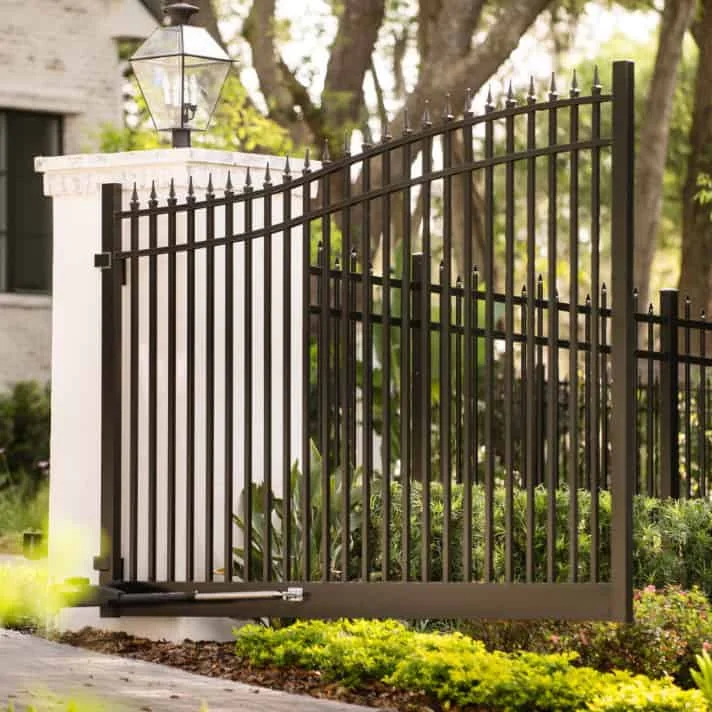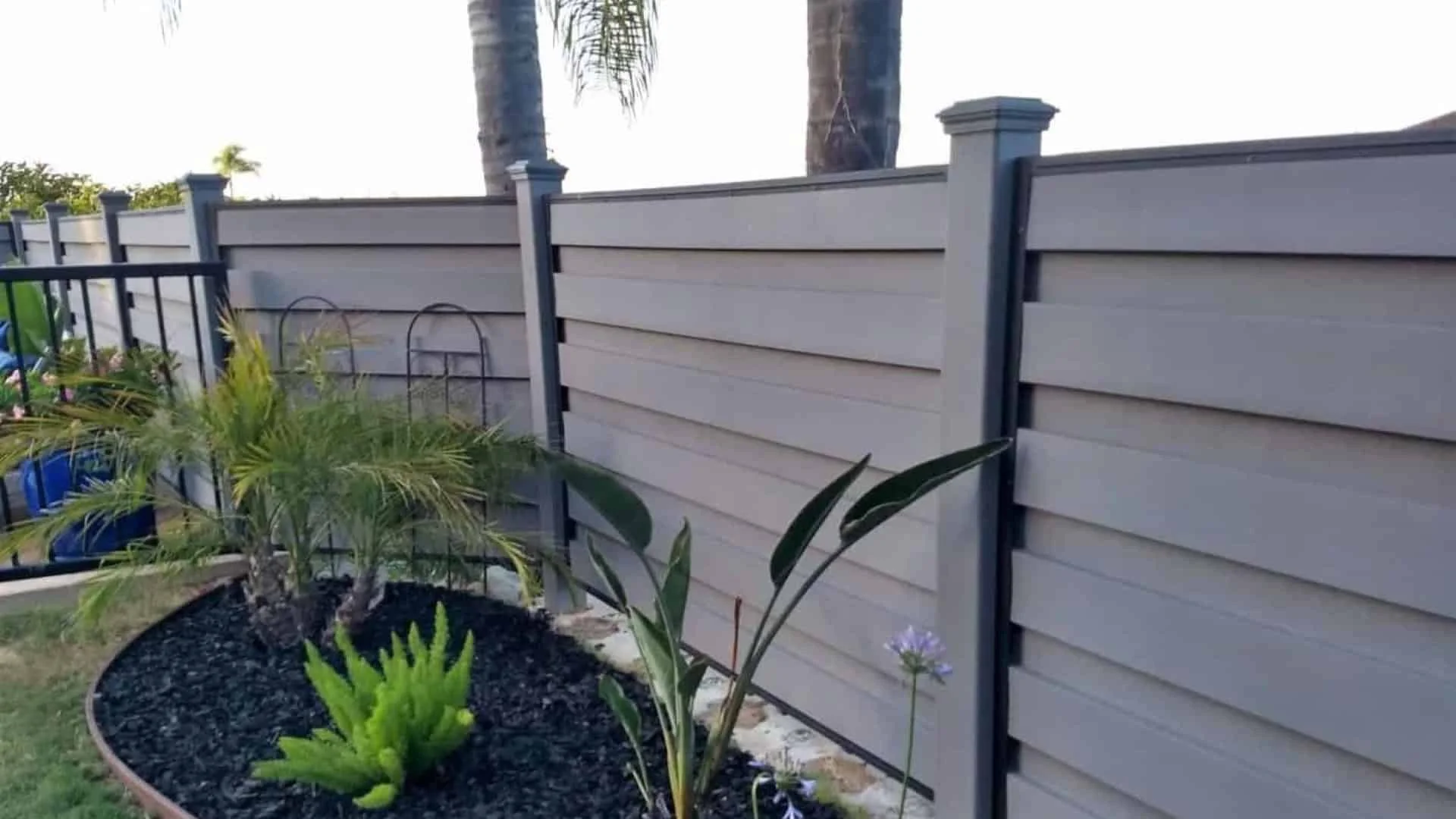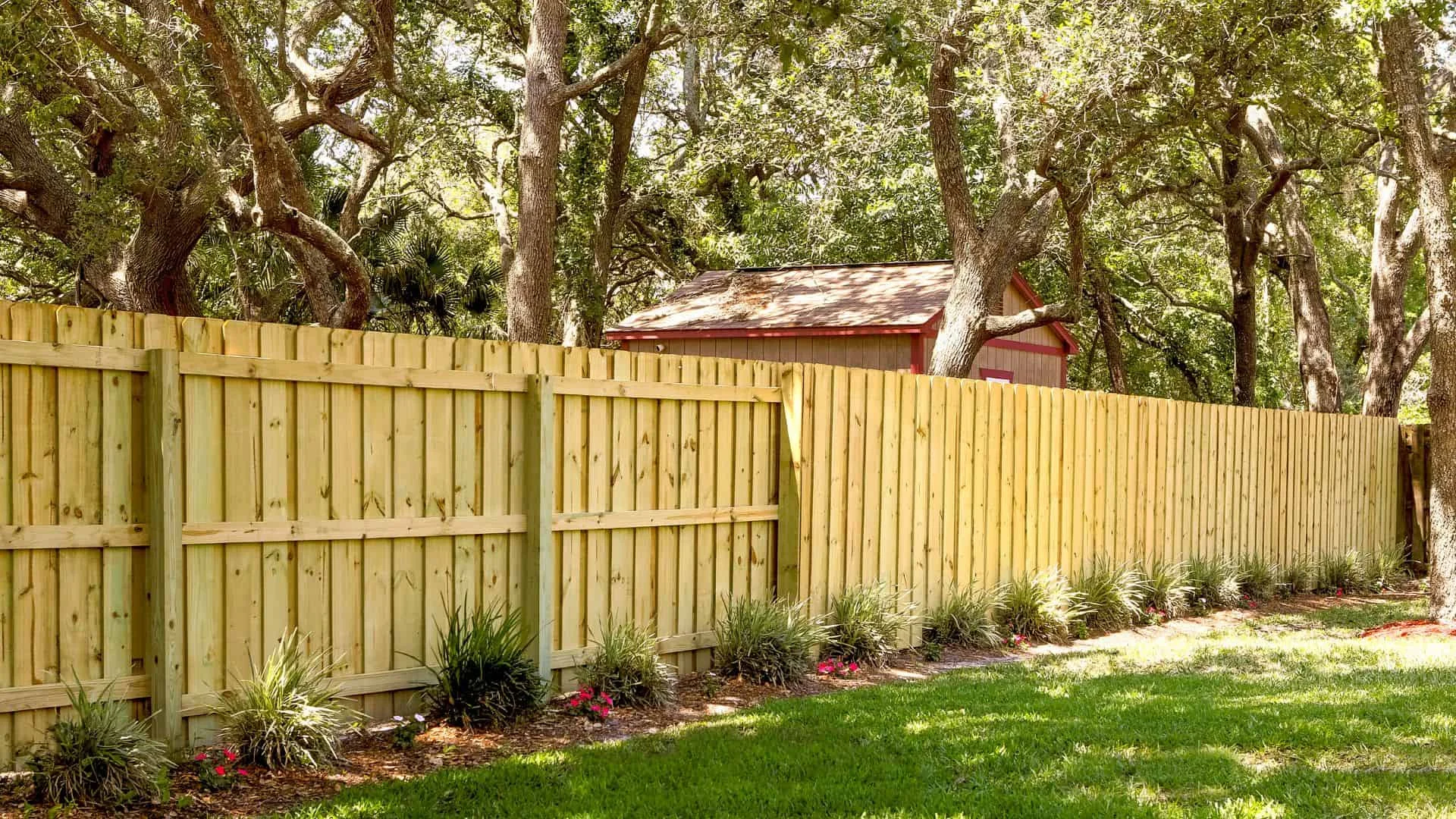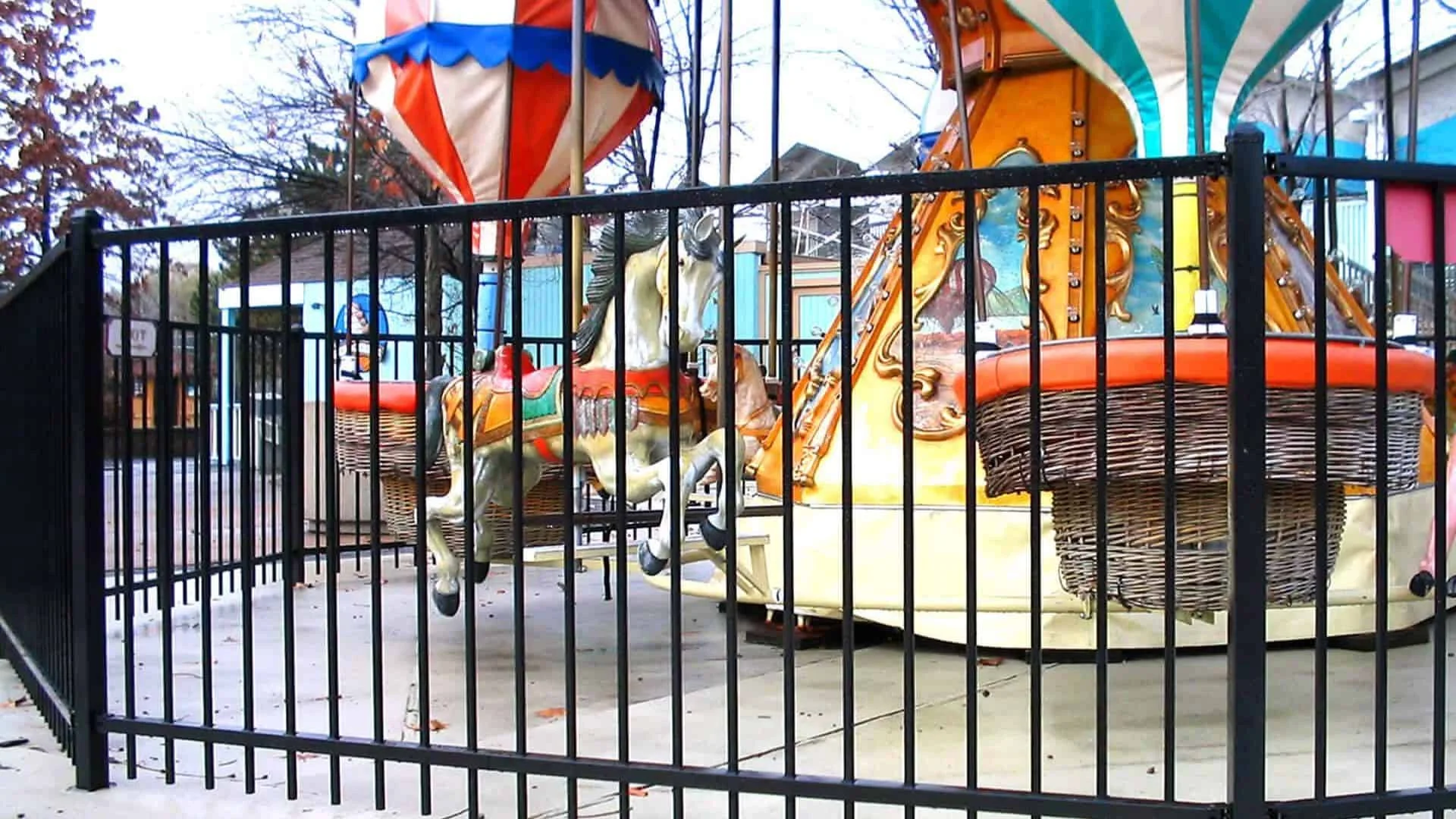Choosing a new fence is a big decision. Fences are not a small investment, and ideally, the fence you choose will last for a long time. If strength & durability are at the top of your list of fence priorities, then you’re probably wondering which fence types fit that description. You want a fence that will stand the test of time, hold up against unpredictable weather elements, and enhance security on your property. But with so many options available, how do you know what is the strongest fence type?
Steel fences, wrought iron fences, and composite fences come in as top contenders for the title of strongest fence material. These fences, when built by a trusted, experienced fence installation company, allow you peace of mind that the strength and durability will meet your requirements. Given the wide variety of fence materials, it can still be hard to choose. Read further to learn more about recommended fence types if durability is top-of-mind for your fence installation project.
What is the Strongest Fence Type?
1. Steel Fences
Steel fences are among the strongest fences you can buy. Steel has been a long-trusted material for huge construction projects such as skyscrapers and bridges. No matter how rambunctious your children and pets are, we are confident a steel fence can withstand the adventures and activities of your yard.
- Pros: Steel fences are more resistant to damage from impacts and high winds than most fence materials. They also have a long lifespan and require little maintenance.
- Cons: If not coated properly, steel fences can be prone to rust. Steel is also one of the more expensive fence materials, but with durability, you can count on it as a worthwhile investment.
- Best for: Steel fences are an excellent choice for high-security, agricultural applications, industrial properties, and properties prone to high winds or extreme weather patterns.
Explore Steel Fence Options
2. Wrought Iron Fences
Wrought iron fences are known for their timeless beauty and impressive strength. With innovative new fence materials, wrought iron fences may not be as common as they once were, but they still offer a singular combination of elegance and durability.
- Pros: Wrought iron fences are a classic choice for their strength. These fences are elegant in style, and many people love the decorative nature of their designs.
- Cons: Wrought iron fencing can rust if not maintained properly, it can be expensive, and should not be a top consideration for properties near the ocean.
- Best for: Classic wrought iron fencing is perfect for traditional homes, historical homes, and neighborhoods and can be added to any property for instant sophistication.

3. Composite Fences
Composite fencing is a relative newcomer to the fencing world. Initially, a product innovated for the decking industry, composite fences have become a popular choice for homeowners seeking low-maintenance, eco-friendly strength. Manufactured from a blend of recycled wood fibers and plastic, composite fencing by Trex offers a gorgeous fence that you’ll adore for many years to come.
- Pros: Not only is composite fencing incredibly strong, but it is also resistant to damage from impacts, moisture, and insects. The recycled composite blend won’t rot, warp, or splinter and requires very little maintenance. For added peace of mind, composite fences come with exceptional manufacturer warranties.
- Cons: Composite fencing is a bigger upfront investment than its wood or vinyl counterpart. However, lasting much longer than wood and never needing to be stained, painted, or sealed, the lifetime cost of ownership is known to be worth the initial investment. The initial color of composite fencing will fade some from sun exposure.
- Best for: Composite fencing is great for homeowners who don’t want to spend their weekends staining and sealing their fence but love the appearance of classic wood fences.
Explore Composite Fence Options

4. Vinyl Fences
Vinyl fences have become quite popular in recent years for their large selection of colors and styles and wide availability. They’re incredibly strong and will never need to be painted or sealed.
- Pros: Vinyl or PVC fences are rot, decay, and insect resistant. Vinyl fences won’t fade or discolor, won’t need staining or painting, and are offered in a large variety of colors and styles to work with any aesthetic.
- Cons: In cold temperatures, vinyl fencing can become brittle and may more easily break from impacts.
- Best for: We recommend vinyl fencing for residential property owners looking for a low-maintenance fence that won’t break the bank.
Explore Vinyl Fence Options
5. Aluminum Fences
Aluminum fences offer the style of wrought iron without the weight and cost. While not as inherently strong as steel, aluminum is still remarkably durable and resistant to damage without requiring much maintenance.
- Pros: Aluminum fences offer lightweight strength, are resistant to corrosion, and are offered in a variety of styles and colors. Aluminum fences can also give a wrought iron appearance with various ornamental styles but at a lower price point.
- Cons: Aluminum fences are susceptible to dents and shouldn’t be used in areas with a need for the highest security.
- Best for: Aluminum fences are excellent for enclosed pool areas and properties near the ocean.
Explore Aluminum Fence Options
6. Wood Fences
Wood fences remain the most popular fence type, as they have been for centuries. The classic, natural look of wood fencing will never go out of style. While not as inherently strong as steel or wrought iron, properly maintained wood fences can be incredibly durable. Fences made of Redwood are among the most durable fences in the wood category.
- Pros: Wood fences are relatively affordable and can be stained or painted to match any style. They also offer a wide variety of styles to meet an array of individual needs.
- Cons: To prevent rot and decay and help a wood fence last as long as possible, it will need to be stained, painted, and sealed regularly. Wood can also be susceptible to insect damage.
- Best for: Wood fences are excellent for homeowners who love the classic wood look, would like to customize the color of their fence, and are able to complete regular maintenance.
Explore Wood Fence Options

Fence Strength Factors You May Not Have Considered
Beyond the fence material itself, several factors can impact a fence’s overall strength:
- Installation Quality: Even the strongest materials won’t hold up if the fence isn’t properly installed.
- Post Size, Depth, and Spacing: Larger fence posts set deeper in the ground provide a more stable fence foundation. Closer spacing of posts should be considered, especially on properties with a propensity for high winds.
- Maintenance: Just like your home, fences need regular maintenance. Regular tasks such as cleaning, staining, or painting, can keep your fence strong and prolong its life.
Choosing the Right Fence for Your Needs
Choosing the strongest fence for your precise needs still requires careful thought. When making your decision, consider factors like your budget, desired aesthetic, security needs, and local climate. Also, consider the occupants of your home and the activities that will take place in your yard. Discuss these factors with a trusted fence professional to get the best advice for your needs.
If you’re ready to get started on your fence project, request a free fence estimate from Superior Fence & Rail today! Our dedicated fence experts will help you choose the strongest, most durable, and most beautiful fence that is just right for your property.




